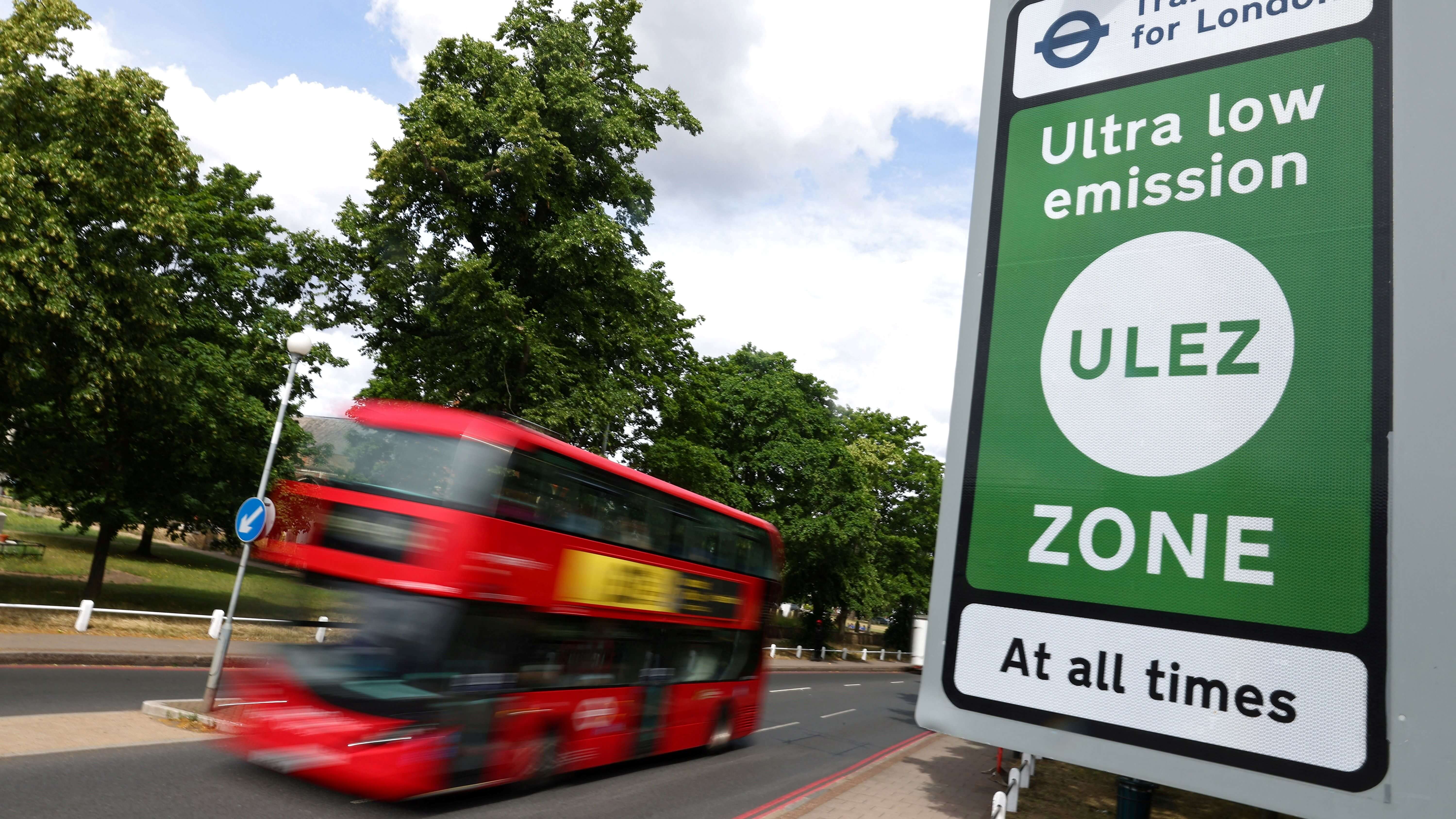The FCA regulates promotional material to make sure it complies with rules and treats customers fairly.
Akinfenwa, ULEZ And Nationwide: Inside Five Of 2024’s Banned Adverts
The FCA regulates promotional material to make sure it complies with rules and treats customers fairly.

Every year, plenty of brands find themselves in hot water over their ad campaigns. Whether it’s for making unsubstantiated claims in their adverts, inadvertently supporting harmful stereotypes or marketing age-restricted products in a way that’s appealing to underage viewers, there’s more than just one way to get your advert removed from the air.
In the UK, in the instance of financial adverts, the Financial Conduct Authority (FCA) regulate promotional material to make sure they comply with rules and treat customers fairly. Financial promotions must be fair, clear and not misleading regardless of the form the advertisement takes.
With the news that Dominic West’s Nationwide advert has been banned for making false claims, the experts at Anglo Scottish, one of the UK’s leading commercial finance companies, have taken a look at some of the banned adverts we love to hate.
Fourteen adverts across different media platforms have been banned since the turn of the year for various reasons. Here are five of 2024’s most high-profile banned adverts across radio, TV and print, and the reasons why they were banned.
Why are certain adverts banned?
The ASA is the UK’s regulator of advertising. They are responsible for administering the UK’s Advertising Codes, which are written by the Committees of Advertising Practice (CAP). The codes consist of the BCAP Code (The UK Code of Broadcast Advertising) and the CAP Code (The UK Code of Non-Broadcast Advertising).
These codes establish rules for advertisers, agencies and media owners to follow when promoting their product or offering. The ASA and CAP are jointly responsible for ensuring adverts conform to these codes.
During a radio advert for online sports bookmaker BetUK, retired footballer Adebayo Akinfenwa stated he was a brand ambassador for the company.
A complaint lodged against LeoVegas suggested that it was not appropriate for the advert to promote gambling, as Akinfenwa was likely to be of strong appeal to those under 18 years of age. BetUK argued that a player of Akinfenwa’s profile was unlikely to appeal to the youth, given that he spent much of his playing career in Leagues One and Two.
However, the ASA established that Akinfenwa had an unusually large profile – he had become a cult hero on the basis of his ranking as the strongest player in the FIFA series of games. Following this, he was given the nickname ‘The Beast’ and became the subject of an Amazon Prime documentary.
An analysis of his social media following ensued, with at least 157,000 of his social media followers found to be aged under 18. Given the star’s platform amongst teenagers, the advert was deemed to be unsuitable for use by the ASA and was banned.
Mous, the phone case manufacturer, also fell foul of UK advertising law this year. The brand’s TV advert depicted 50 people throwing their phones – with Mous cases on – into the air. After picking their phones up from the ground, these people assessed their phones to find no damage and the phone functioning as normal.
A complaint was made by a member of the public who felt this advert exaggerated the protective performance of a Mous case. Their phone had been damaged after a short fall, despite having a Mous case on.
Mous appealed that the advert had been put together based on real test data that the company had accrued over a series of intensive tests. The Mous team said the advert did not exaggerate but demonstrated a “genuine record of over 50 simultaneous drop tests.”
The watchdog, however, found that the advert had displayed people dropping their phones from a greater height than the drop test. It was also found that many of the phone’s features were not tested during the drop test. Mous therefore was asked to pull the advert in its current state.
John Mills Ltd.’s Hurricane Spin Scrubber advert
Another 2024 advert was removed from TV for perpetuating harmful gender stereotypes. This advert, which promoted John Mills Ltd. (JML) Direct’s Hurricane Spin Scrubber, showed women using the cleaning tool in bathrooms, kitchens and other areas of the home.
The advert featured four women who described their experience with the tool, with a male host and female assistant demonstrating the product.
Joint CAP and BCAP guidance states that ads “may feature people undertaking gender-stereotypical roles, such as women cleaning,” but the ads must take care to avoid suggesting that the acts shown were not: “always uniquely associated with one gender; the only option available to one gender; or never carried out or displayed by another gender.”
Watchdog guidance indicated that the ad’s male host – seen as an authoritative figure, and not demonstrated actually using the product in the home – reinforced the negative stereotype that the product’s intended use is suitable for women only.
Nationwide’s Branch Promise advert
In perhaps the most high-profile ad ban of the year, one version of Nationwide’s satirical TV, radio and print ad campaign, starring Dominic West, was removed by the ASA. The ad featured West as a representative of a fictional rival bank, which was prepared to close their in-person banks in order to cut costs.
The advert sought to differentiate Nationwide from the fictional bank, with the claim “Unlike the big banks, we’re not closing our branches.” It was this claim, however, that caused 228 complaints to be made, predominantly by customers who had recently experienced their local Nationwide branch closing or cutting opening hours.
Nationwide argued that its advert was intended to be forward-facing and fell in line with their ‘Branch Promise’ that they would not close any branches between the time of the ad airing and 2026.
However, the ASA ruled that the advert was misleading because, though Nationwide had closed fewer branches than any other financial institution in the ten years leading up to the campaign, it had still closed branches during that time. The ASA also stated that the advert implied a longer-term commitment to not closing branches than the actual Branch Promise provided.
As a result, this version of the campaign was removed from the public domain.
Greater London Authority’s ULEZ advert
A radio ad, heard on the air between February and March 2023, which promoted the expansion of London’s Ultra Low Emissions Zone (ULEZ) was also removed from the air by watchdogs. The ad made a claim that “one of the most polluted places in London is inside your car,” leading to a number of complaints from members of the public.
A claim like this required plenty of supportive evidence, which the ASA extensively reviewed. The Greater London Authority (GLA) had pulled data from ten reports examining pollution levels, a video from The Guardian and King’s College London and the Chief Medical Officer’s 2022 report.
The ASA’s review of the evidence established that proximity to the source of pollution (in this case, the car exhaust) did increase exposure. It also confirmed that car users are exposed to air pollution while inside their vehicle and the fact that London’s air is generally polluted.
However, the evidence did not establish how polluted the air inside a car is in relation to other areas of London, meaning the claim that a car’s interior is one of “the most polluted places in London” could not be substantiated. The ad was therefore pulled.
Stuart Wilkie, Head of Commercial Finance at Anglo Scottish, comments: “Staying within advertising laws is easier said than done. The urge to stand out in a crowded marketplace often leads brands to rely on differential messaging, which can walk the line between legitimate and unfounded. Given how intricate and detailed the CAP and BCAP Codes are, it’s important that business leaders understand exactly how their messaging fits into the guidelines.”
Thanks for signing up to Minutehack alerts.
Brilliant editorials heading your way soon.
Okay, Thanks!


